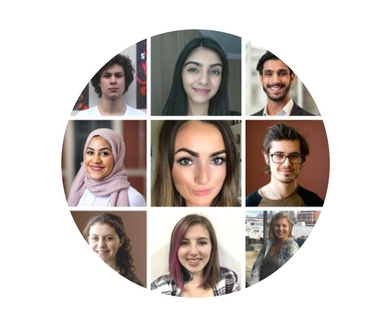
Whatever age you are, and regardless of where you are in life, studying and getting ready for exams can be a grueling experience, often filled with stress and anxiety. But don’t panic! A number of undergraduate students in the Faculty of Arts & Humanities at King’s College London have revealed their top study and exam tips to keep you feeling calm and in control. Check them out below!
Not everybody has to spend 8 hours in the library everyday. If it works for you, do it. If it’s too stressful and uncomfortable, study in your room. The most important thing is that you’re comfortable wherever you are.
– Dana, Digital Humanities BA
Adobe Reader is a helpful tool as it allows you to highlight and make notes in the margins like you would on a piece of paper. I’ve also started using Microsoft OneNote as I can organize it like a binder with different pages and easy-to-move text boxes for each week of my modules.
– Kelly, Digital Humanities BA
My main study tip is that there is no one right way to study. Some people need to work in the library, some need total solitude, and others need to work in a group to achieve their best results. Being experimental and learning what does work for you will be the best thing you can do to tackle exam stress.
– Elana, English BA
For exam prep, I favour flashcards and writing out the key points I have to know. I think flashcards, highlighters and some good ink gel pens are a must for organisation, clarity and speed.
– Samuel, English BA
I find the most important thing is to create notes that are visually appealing to help me to memorise information. Since I do essay-based subjects, my notes are structured in a table format and divided by key facts, main points and counter arguments.
– Trisha, Film Studies BA
Personally, I find having a good balance between work and play increases my productivity. Whether it’s taking your dog for a walk or having a few drinks with a friend, it is a chance for you to recharge those batteries and more importantly – stay sane!
– Rhiannon, French BA
I like to work early in the morning and in the evenings. In the afternoon, my brain goes to mush, so don’t despair if you can’t work all hours of the day – take a break! Make sure you’re working hard and not hardly working…
– Emma, Theology & Religious Studies BA
Having specific memory aids really help. I have some strange one myself – I always remember that my A level Spanish textbook was really cold to the touch, and thinking about that always helped me remember the content better. I did an exam on Descartes and I still associate some old Ed Sheeran songs with some of his arguments. Get creative and use colours, textures and music to start forming these helpful links!
– Aaran, Philosophy & Spanish BA
Make ‘to do’ lists. There are few things more satisfying than crossing jobs off a list, and also this lets you know when it’s time to stop for the day!
– Calum, Theology & Religious Studies BA
Whatever your style, we wish you the best of luck in your studies, and we hope you are able to make use of some of our tips. Let us know if anything works for you!

I am a morning person. I like to work from 9 to 5 on a normal day. After that will go to the gym and then just get ready to sleep and for the next day.